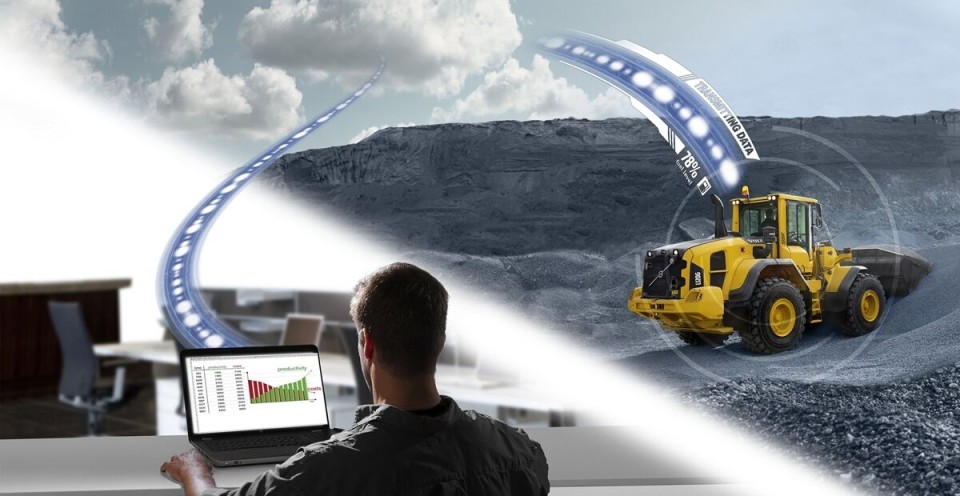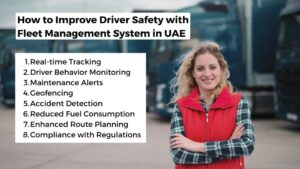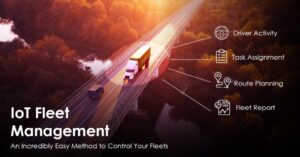Telematics is the hero transforming construction fleet management. It is a fact that this industry values time and precision. The integration of telematics with Fleet Management Software, increase the operational efficiency. With telematics businesses get real-time insights into the exact location of each vehicle. It would not only optimize fuel consumption but also provide maintenance alerts. This would help in preventing costly breakdowns of the fleet. This is the transformative power of telematics in construction.
Therefore, this article talks about ten key strategies of enhancing operational efficiency with telematics. Lets navigate through the technological revolution that is reshaping construction fleet management.

1. Vehicle Tracking: Real-time Location Monitoring
Telematics empowers construction companies with real-time location tracking. This provides a comprehensive view of each vehicle’s whereabouts. This feature enhances control, allowing for swift decision-making and improved fleet coordination.
Example: A construction manager can redirect vehicle to a site experiencing unexpected delays. Thus, minimizing disruptions and ensuring timely project completion.
2. Fuel Management: Fuel Efficiency Monitoring
Telematics systems track fuel consumption, engine idling, and driving behavior. This data enables construction companies to optimize fuel efficiency. It helps the companies save costs which would get wasted over time.
Stat: Telematics-driven fuel optimization can result in up to a 15% reduction in fuel costs. Thus, contributing directly to increasing profits by 15%.
3. Maintenance Planning: Predictive Maintenance Alerts
Telematics sensors keep a close eye on vehicle and equipment health. These devices sends predictive maintenance alerts based on actual usage patterns. This proactive approach minimizes downtime, enhances safety, and reduces repair costs.
Example: A telematics alert signals construction manager to schedule maintenance for a vehicle. This helps prevent a potential breakdown and avoiding costly repairs.
4. Route Optimization: Smart Route Planning
Telematics analyzes traffic patterns and construction site locations to devise optimal routes. This not only reduces travel time but also enhances efficiency. The software helps cut fuel consumption and wear and tear on vehicles.
Stat: Telematics-driven route optimization can lead to a 20% reduction in travel time. This leads to increased productivity and on-time project delivery.
5. Driver Behavior Monitoring: Safety and Compliance
Telematics tracks driver behavior and promotes safer driving practices. Tracking helps businesses ensure compliance with safety regulations and industry standards. This not only enhances safety but also protects the company from legal liabilities.
Example: Telematics alerts on harsh braking encourage drivers to adopt safer driving habits. This contributes to a safer work environment.
6. Asset Tracking: Equipment Management
Telematics extends beyond vehicles to track and manage construction equipment. This feature reduces the risk of theft. It helps ensure availability of the equipment and streamlines project timelines.
Stat: Telematics-driven asset tracking can reduce equipment downtime by up to 25%. Thus, optimizing resource utilization and project timelines.
7. Job Site Visibility: Enhanced Site Management
Telematics provides construction managers with real-time visibility into operations at job sites. This facilitates better project monitoring and increase site visibility. Resource allocation becomes more efficient and streamlines coordination among teams.
Example: A project manager can remotely monitors equipment usage. It helps ensure optimal deployment across multiple sites, leading to enhanced project management.
8. Data Analytics: Performance Analysis
Telematics generates valuable data on vehicle and equipment performance. Analyzing this data reveals trends and helps identify areas for improvement. This enables managers make strategic decision-making for long-term success.
Stat: Construction companies utilizing telematics for data analysis report a 15% improvement. It increases operational efficiency increasing the importance of data-driven decision-making.
9. Compliance Reporting: Regulatory Documentation
Telematics automates the collection of data required for regulatory compliance. This helps in streamlining the reporting process. This reduces the risk of incurring fines or penalties. It helps the managers and owners ensure adherence to industry standards.
Example: Telematics-generated reports provide comprehensive documentation for regulatory audits. This helps build a smooth and compliant operational framework.
10. Insurance Premium Reduction: Risk Management
Having good telematics can help build a safer environment with fleet management software. By leveraging the data on safe driving practices and vehicle conditions, companies are able to increase safety standards . This may result in lower insurance premiums, contributing to overall cost savings.
Stat: Companies implementing telematics for risk management reported a 30% insurance premium reduction. This proves the tangible financial benefits of proactive risk mitigation.

To sum it up, the integration of telematics in this industry is of utmost importance. This integration with Fleet Management has shown to yield multifaceted benefits. From real-time tracking to predictive maintenance and insurance premium reduction; telematics enhances efficiency and profitability. Embrace the power of Fleet Management Software and telematics to stay ahead in the competitive construction landscape.
Call-to-Action: Ready to revolutionize your construction fleet management? Explore the possibilities with telematics and embrace a new era of efficiency and cost-effectiveness with TransportSimple






Leave a Reply